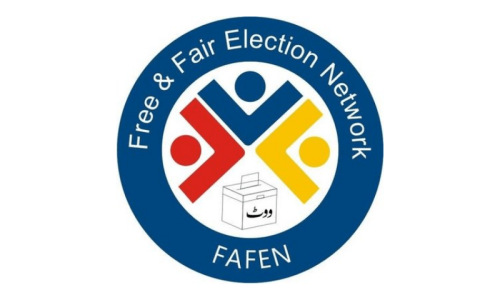THE Pakistani public has been a victim of appalling policymaking in the way the authorities deal with technology. Their policies are arbitrary in nature and range from atrocious electricity generation policy to tapping phone calls, or from curtailing internet access to a complete ban on X (formerly Twitter). But all these policies have one thing in common and that is they are devoid of logic all the time.
Let us see how this policymaking takes place, and what is the role of senior civil servants, who we can term the ‘boomer uncles’ of policymaking. These are the individuals whose most noteworthy achievement in life is passing the CSS exam some 30 odd years ago. Another noteworthy trait is their blind compliance with authority, whether legitimate or illegitimate. This consistent servitude helps them move up the ladder slowly but surely, and in time they end up in top decision-making positions of the civil bureaucracy.
Their servitude is ironic, because the civil service is different from military service in the sense that civil servants are selected after a stringent process that is more focused towards academic excellence to make sure that the selected individuals have the analytical ability to initiate meaningful policymaking and objectively evaluate and critique the policies suggested by the politicians or the dictators in power. It would really be pointless to put so much emphasis on academic excellence in a number of subjects for the CSS exam when all the selected candidates are going to do for the next 20 to 30 years is to appease those in power and submit to their whims.
The policymaking process, or any decision-making process, typically starts with a grade-17 officer moving a summary with all the details of the suggested action for an issue under the spotlight. That summary, after some corrective actions — which are mostly related to the diction of the summary and pointing out a few grammatical mistakes here and there rather than the content — moves up the bureaucratic hierarchy to finally end up at the desk of the grade-22 officer, the secretary, who further makes sure that the content is in line with the thought process of his or her political or non-political boss. This can, at best, be termed an exercise in flattery rather than policymaking.
Civil servants must be daring enough to share their feedback on policies.
This precise methodology results in the young civil servants preparing policy drafts in line with the wishes of their boss — the original boomer uncle — rather than preparing policy drafts considering the needs of the public and their well-being. This systemic sycophancy results in making the well-qualified and extensively trained young civil servants nothing more than glorified clerks who are mere paper pushers. It goes without saying that any deviation from the inclination of the powerful masters is snubbed as well as discouraged. This way, even young officers who might be fresh graduates from among the best local and foreign universities are stuck in a mindset that is at least 30 to 40 years behind our time, which is precisely where our political and military elite is also stuck these days.
Many might argue that with the military being in the driving seat these days, this criticism of civil servants is a little unfair. The answer to that naïve criticism is that the military might have the power, but it still needs input from civil servants for policymaking. The military is never trained to manage public discourse or public sentiment, as it is trained to conquer enemy territory and public sentiment hardly matters there. This is the very reason the role of feedback by civil servants becomes critically important. The actions suggested by those in power have to be evaluated objectively by the civil servants, and fearless feedback is a must. The boomer uncles who have modeled their life around ap-peasing men in po-wer fail to do so. These factors result in highly oppressive policies that are detrimental not only for the state but also for the “state within the state”. Sixty-four per cent of the population in the country is below 30 years of age, which signals a virtual generation gap between the policymakers and the public. “Someone” must look to find ways to bridge that gap rather than widening it by labelling it as “digital terrorism”. The solution lies in two-way communication rather than such accusations.
Lastly, the civil servants must step up and be daring enough to share their feedback on such policies verbally as well as in writing, so that greater reflection can take place before implementation. Civil servants must provide the bridge between the public and the ruling elite. Otherwise, the powerful military, the not-so-powerful politicians and an indifferent civil service is a perfect recipe for disaster, which should be pretty evident by now.
The writer is a former civil servant.
Published in Dawn, August 31st, 2024












































Dear visitor, the comments section is undergoing an overhaul and will return soon.